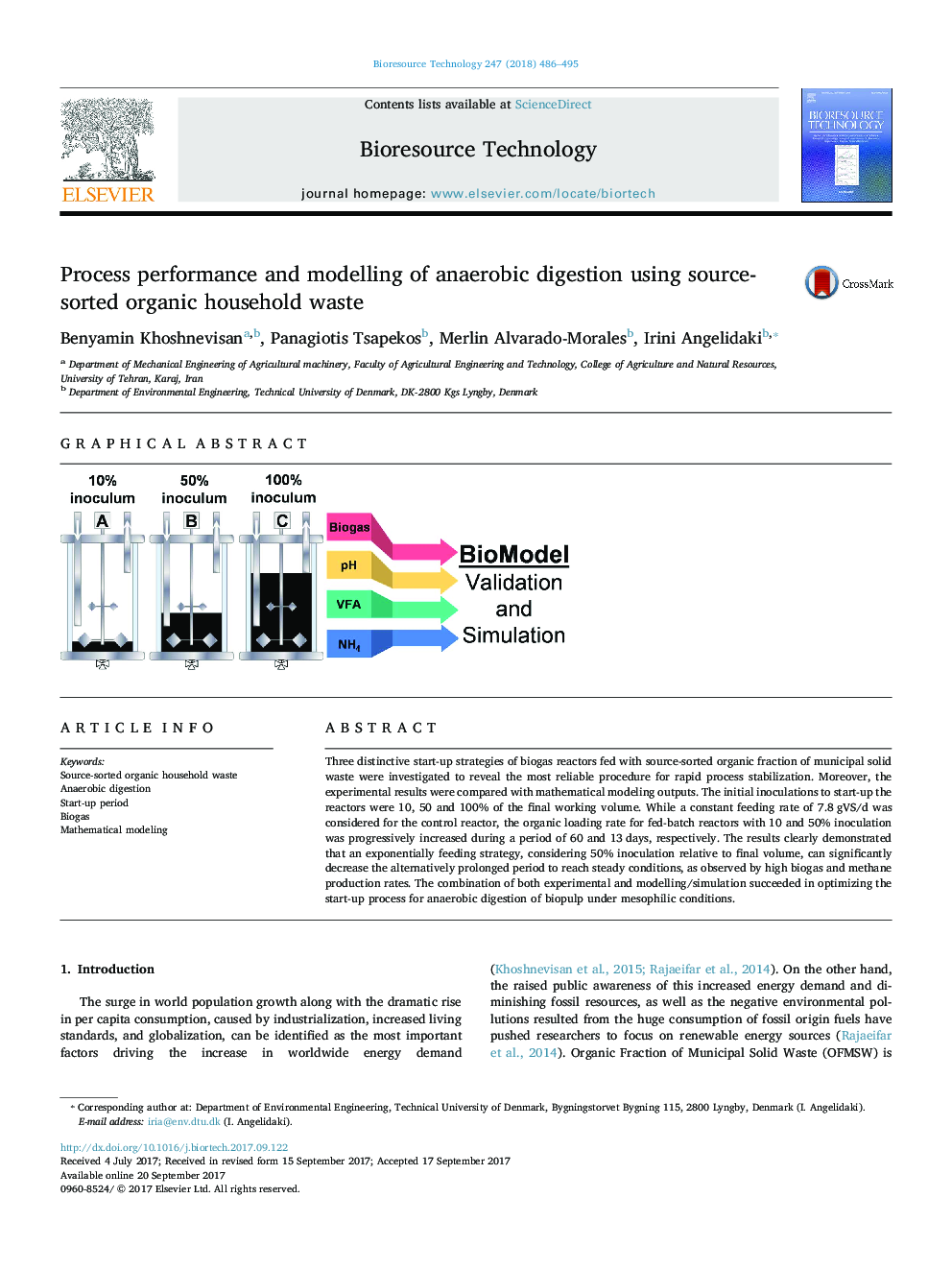| کد مقاله | کد نشریه | سال انتشار | مقاله انگلیسی | نسخه تمام متن |
|---|---|---|---|---|
| 4996668 | 1459897 | 2018 | 10 صفحه PDF | دانلود رایگان |
- The anaerobic digestion of source-sorted organic household waste was examined.
- High methane yield was produced using batch assays up to 0.49Â NLCH4/gVS.
- Different start-up strategies of fed-batch reactors were evaluated.
- Exponential feeding strategy with 50% inoculation was the most reliable strategy.
- The experimental results were validated using dynamic bioconversion modelling.
Three distinctive start-up strategies of biogas reactors fed with source-sorted organic fraction of municipal solid waste were investigated to reveal the most reliable procedure for rapid process stabilization. Moreover, the experimental results were compared with mathematical modeling outputs. The initial inoculations to start-up the reactors were 10, 50 and 100% of the final working volume. While a constant feeding rate of 7.8Â gVS/d was considered for the control reactor, the organic loading rate for fed-batch reactors with 10 and 50% inoculation was progressively increased during a period of 60 and 13Â days, respectively. The results clearly demonstrated that an exponentially feeding strategy, considering 50% inoculation relative to final volume, can significantly decrease the alternatively prolonged period to reach steady conditions, as observed by high biogas and methane production rates. The combination of both experimental and modelling/simulation succeeded in optimizing the start-up process for anaerobic digestion of biopulp under mesophilic conditions.
79
Journal: Bioresource Technology - Volume 247, January 2018, Pages 486-495
